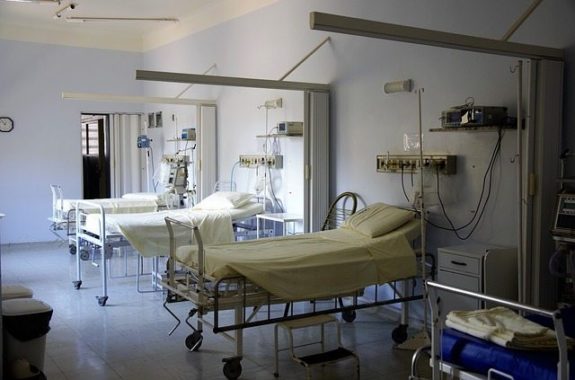
April 13, 2017; KTUL
Hospitality House of Tulsa is a faith-based nonprofit that provides lodging, meals, and other forms of assistance to families facing medical crises, and has served Oklahoma families since 2006. However, the Tulsa-based organization says that the number of families it serves has more than doubled in the past year as Oklahoma’s rural hospital system faces a crisis of its own.
In an interview with Tulsa’s ABC affiliate, Hospitality House’s president, Toni Moore, stated that the organization served 966 families in 2016, nearly twice as many as the year before. The reason, Moore says, lies in the extensive hospital closures happening outside of Oklahoma’s metropolitan areas. As more people are forced to travel to the Tulsa area for healthcare, Moore says, the need for reduced-price hotel stays and other patient-family services skyrockets.
The shortage of rooms at Hospitality House is one symptom of Oklahoma’s rural hospital shortage. A study funded by the National Rural Health Association last year showed that 42 hospitals in Oklahoma are currently at risk of closure. NPQ covered the closure of Sayre Memorial, a hospital located three hours from Tulsa, in last year’s coverage of the rural healthcare shortage. Another Oklahoma hospital, this one in the town of Frederick, closed last month. The closures are largely rooted in financial problems: Over 80 percent of patients at critical access hospitals in the state are on Medicare, according to the Oklahoma State University Center for Rural Health.
Sign up for our free newsletters
Subscribe to NPQ's newsletters to have our top stories delivered directly to your inbox.
By signing up, you agree to our privacy policy and terms of use, and to receive messages from NPQ and our partners.
Medicaid and Medicare reimbursement rates have been slashed in recent years. After the passage of the Affordable Care Act, hospitals across the country were set to face decreased Medicare payments. The ACA figured that improvements to insurance coverage and fewer uninsured patients would make up the difference; however, along with 21 other states, Oklahoma has refused federal funds to expand Medicaid healthcare coverage to low-income uninsured residents. So, Oklahoma hospitals lost out on Medicare reimbursements but didn’t make gains in Medicaid insurance payments. A proposed state bill, the Medicaid Rebalancing Act of 2020, would reduce the uninsured rate through a blend of federal Medicaid funds, tax credits, health incentive-based commercial plans, and a new cigarette tax. However, the bill would only reduce Oklahoma’s uninsured rate—currently 15 percent—by about a third.
Oklahoma isn’t alone in facing the decline of rural hospitals. According to researchers at the University of North Carolina, at least 78 rural hospital closures have occurred in the United States since 2010, representing about four percent of all rural hospitals. As the Washington Post noted earlier this week, the loss of a hospital in a rural community doesn’t just affect convenience. These closures reduce patient safety, affect emergency preparedness, and cut jobs in areas already hard-hit by economic insecurity.
Hospitality House continues to work with Tulsa hospitals to expand the number of families served. Last year, the nonprofit began a private-nonprofit partnership, guaranteeing 10 rooms per night at a local DoubleTree Inn. The Hospitality House’s waitlist still averages 10 families per day.—Lauren Karch













